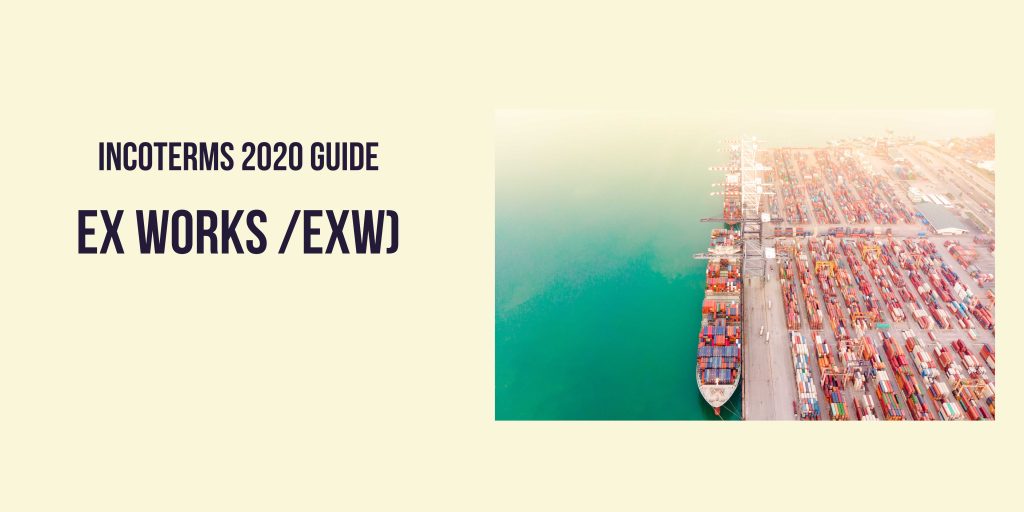The International Chamber of Commerce (ICC) has established Incoterms, or international commercial terms, to make global trade simpler. These universally acknowledged guidelines define the responsibilities of both buyers and sellers in international trade contracts and business deals. While some of these terms are applicable to all transport modes, others are exclusively for waterway shipments.
What is Ex Works (EXW)?
Ex Works (EXW) is an international trade agreement where the seller is only required to prepare goods for pickup at a specific location. Under this term, it’s the buyer’s responsibility to handle all transportation expenses once they collect the cargo.
The seller is responsible for preparing the goods for pickup, ensuring they are properly packaged and labeled, and delivering them to a predetermined location, often near the seller’s premises. While the seller assists the buyer in procuring necessary export documentation, the costs associated with these documents falls on the buyer.
Once the goods are made available, all further costs and potential risks involved in transporting the goods to their final destination are the buyer’s responsibility. These could include loading cargo onto vehicles, international shipping, customs clearance, unloading, as well as any following storage or resale activities.
Responsibilities
Buyer
Under EXW agreement, most of the responsibilities fall onto the buyer.
- Loading charges: costs associated with loading goods at the established pickup point
- Delivery to the port of origin: costs associated with transporting goods to the port for shipping
- Customs export fees: costs associated with duties, tariffs, and documentation
- Loading on carriage: costs associated with loading goods on the shipping method
- Carriage charges: shipping costs associated with moving goods between ports
- Insurance if required
- Customs import fees: costs associated with duties, tariffs, and documentation
- Terminal charges: if there are fees at the arrival terminal
- Destination delivery: costs associated with delivering goods from the arrival port to the final destination
- Unloading: cost associated with unloading goods
Seller
Under EXW, the seller’s responsibilities are very low.
The seller is only responsible for packing goods and preparing them to be picked up at the established location.
Advantages and disadvantages of Ex Works
Advantages
- Buyers can consolidate multiple purchases: if a buyer purchases products from multiple suppliers, it is not convenient for them to ship each package separately. Consolidating multiple purchases from various suppliers helps buyers to reduce costs and transport complexities after goods are delivered at pick-up locations. In fact, under EXW terms, the goods are usually made available by the sellers at a designated location, allowing the buyer to pick up all the goods from these locations at once.
- Allows to anonymize a supplier if businesses want to safeguard supply chain details from competitors
- Cheapest solution
Disadvantages
- Buyer assumes all risk and costs: the buyer handles all risks and costs associated with cargo export, transport, and importation. Most International Commercial Trade Agreements allow buyers and sellers to share the responsibility of these processes, while with EXW the seller is not required to load, deliver, and export the cargo to the terminal.
- If buyers aren’t well acquainted with EXW processes and costs, they easily encounter unexpected expenses




